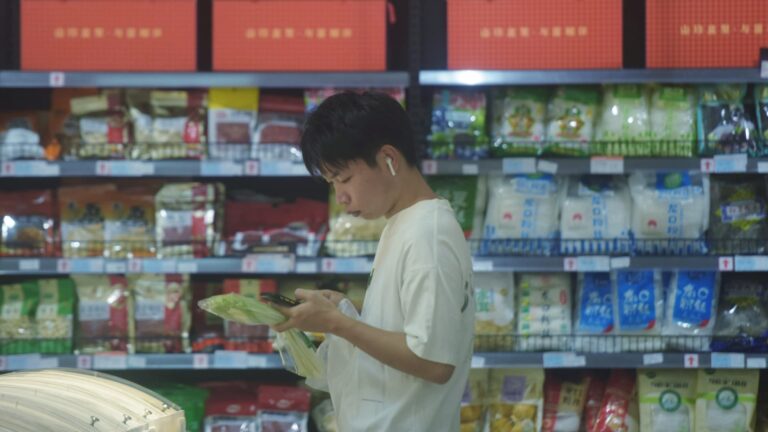Pictured here is a shopping mall in Hangzhou, China, on Sept. 9, 2024.
Nurphoto | Nurphoto | Getty Images
BEIJING — China’s retail sales, industrial production and urban investment in August all grew slower than expected, according to National Bureau of Statistics data released Saturday.
Retail sales rose by 2.1% in August from a year ago, missing expectations of 2.5% growth among economists polled by Reuters. That was also slower than the 2.7% increase in July.
Industrial production rose by 4.5% in August from a year ago, lagging the 4.8% growth forecast by Reuters. That also marked a slowdown from a 5.1% rise in July.
Fixed asset investment rose by 3.4% for the January to August period, slower than the forecast of 3.5% growth.
The urban unemployment rate was 5.3% in August, an uptick from 5.2% in July.
Among fixed asset investment, infrastructure and manufacturing slowed in growth on a year-to-date basis in August, compared to July. Investment in real estate fell by 10.2% for the year through August, the same pace of decline as of July.
“We should be aware that the adverse impacts arising from the changes in the external environment are increasing,” the bureau said in an English-language statement. A “sustained economic recovery is still confronted with multiple difficulties and challenges.”
This weekend, Saturday is a working day in China in exchange for a holiday on Monday. The country is set to celebrate the Mid-Autumn Festival, also known as the Mooncake Festival, from Sunday to Tuesday. The next and final major public holiday in China this year falls in early October.
Growth in the world’s second-largest economy has slowed after a disappointing recovery from Covid-19. Policymakers have yet to announce large-scale stimulus, while acknowledging that domestic demand is insufficient.
Other data released in the last week have underscored persistent weakness in consumption.
Imports rose by just 0.5% in August from a year ago, customs data showed, missing expectations. Exports rose by 8.7%, beating expectations.
Beijing’s consumer price index for August also disappointed analysts’ expectations with an increase of 0.6% from a year ago.



